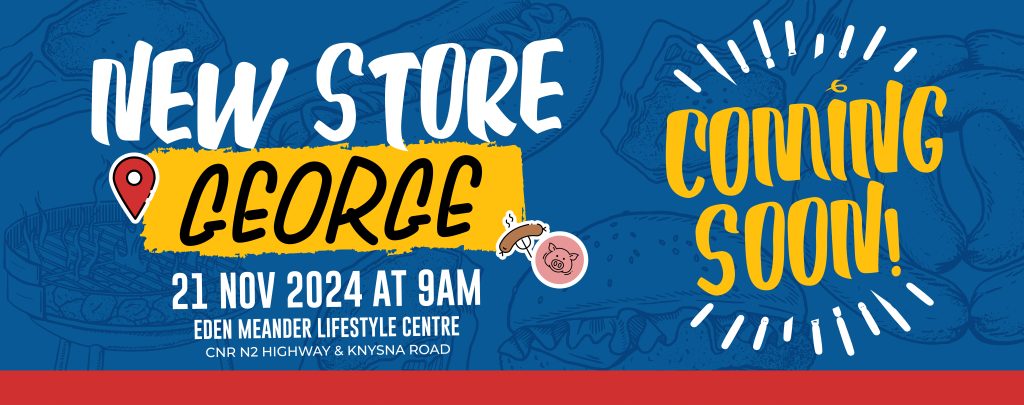
George, are you ready for our Grand Opening?
We're excited to announce the grand opening of our brand-new Eskort store in George! And we're not coming empty-handed – we have amazing instant...
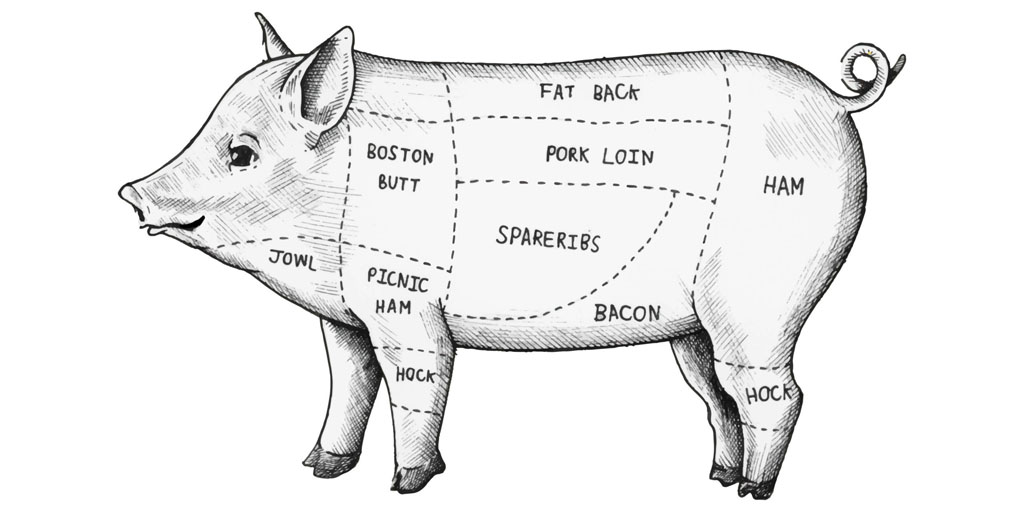
As consumers, we’re largely at the mercy of a faceless production and retail process when choosing the food we buy. But we’re becoming savvier, and being kept in the dark about where our food comes from is no longer good enough. What’s more is that we no longer need to compromise on quality. When choosing to partner with Eskort, transparency was all-important to me. As it turned out, our collaboration has been a dream, and whenever I had any questions – no matter how difficult – all I needed to do was ask. In this conversation with Charl and Johan, two of Eskort’s top pig farmers, I was blown away by their honesty, but more so by their incredibly innovative approach to what they do.
A FAMILY STORY
Both Charl and Johan are custodians of farms that were started by their families a generation or two ago. Charl’s grandfather, Oupa Gerhard, started farming with pigs on day one, and by the 1960s had grown the farm into a very successful business, eventually becoming one of Eskort’s biggest suppliers by the 1970s. Although Johan’s parents started their farm around the same time, they first started as crop farmers, then later added the piggery. But they began their partnership with Eskort at about the same time as Oupa Gerhard.
HOW FARMING HAS CHANGED
Born into farm life, both Charl and Johan have had front-row seats to the shifting tides of agriculture over the last few decades. “There’s been a huge increase in the mechanisation around feeding the animals, but we’ve also done a lot of research into modern-day agricultural practices by visiting farmers in Europe to see what they’re doing,” says Charl. “What we found in the Netherlands was that pig farming was still very much hands on and every person plays a big part in the process.” So, despite great leaps in agricultural technology, pig farming has not lost its human touch.
“These days, if you want to play for the A team, there are certain standards you have to adhere to relating to the environment, water supply, food safety, insecticide use…. It’s become a very specialised industry,” says Johan. “Added to that, the consumer has become a lot savvier, meaning we have to be more transparent about our process. But we keep records of everything through every step of the process, so when asked, we’re able to say exactly what medicines or antibiotics we used – and we use those only when necessary.”
When working with pigs, a farmer’s single biggest challenge is the health of the herd, followed by genetics, what you feed the animals, and of course, how the process is managed by people. The healthier the pigs are, the less they rely on antibiotics and other medicines, meaning that the consumer gets a better-quality product.
“We farm with what we call SPF (Specific Pathogen Free) pigs. Farming in this way – and by carefully controlling the pigs’ nutritional intake – means you’ve effectively gotten rid of a lot of illnesses on your farm,” says Charl, “You can’t get rid of everything, but in essence it means you use on average 90% less medicine than farming in any other way. It’s been instrumental to our success.”
“Farming with pathogen-free pigs is partly to do with genetics, which is also tightly controlled,” adds Johan, “but is also determined by the environment in which the animals are kept – and the way we control every aspect of that environment – which means that they seldom get sick.”
FROM FARM TO FORK
At the core, both Johan and Charl are exceptionally mindful in their farming practices with a keen eye on sustainability. Most South African pig farms observe the guidelines set out by the quality assurance regulator, Pork 360, which falls short of Eskort’s exacting standards. Instead, their farmers adhere to SAFE, a set of guidelines of their own design, based on European standards of pork production. It follows a more holistic farm-to-fork approach that includes everything from sustainability to the medicines you use.
“You have to strike a balance,” says Charl. “There are a lot of big farms that insist on keeping their pigs disease free through the use of antibiotics, but you have to do better than that and find more innovative solutions.”
“In adapting our practices 20 years ago to provide a better quality of pork, we became more concerned with the welfare of our pigs,” says Johan. “Twenty years ago, farmers were very resistant to the idea, because they thought it would have a negative impact on production, but the opposite proved to be true. We certainly paid our school fees in the process, but I wouldn’t want to work any other way.”
“We’re also part of a vulture rehabilitation programme where we feed the piglets that die during birthing process to the vultures on our farm. And scavenging on our carcasses means the vultures don’t ingest any antibiotics or medicines.”
“On our farm, we recently found out that our colony of vultures is growing,” says Johan. “Eskom has also done a lot to help us protect the vultures by installing isolators in the pylons running through our land. The added benefit of the programme is that it reduces pollution in the area, because we’re not disposing of our mortalities through cremation.”
SOUTH AFRICA’S FAVOURITE CUTS
“South Africans love a gammon over Christmas time,” says Johan. “It’s the summer season, so the fact that you can have it cold has a lot to do with its popularity. We also like a good braai, and a loin chop or neck steak has become a very popular alternative to the more traditional braai meats. My rule of thumb when it comes to cooking pork is, if you don’t overcook it, it’s delicious.”
“Personally, I love Eskort’s ribs,” Charl interjects. “Ribs and chips,” he laughs. “We sell the pork to Eskort and then buy it back from them! We eat pork about four times a week.”

We're excited to announce the grand opening of our brand-new Eskort store in George! And we're not coming empty-handed – we have amazing instant...

When you turn 107, you definitely deserve 107 cakes. But, we didn’t just settle for ordinary cakes. As South Africa’s leading antibiotic-free pork...
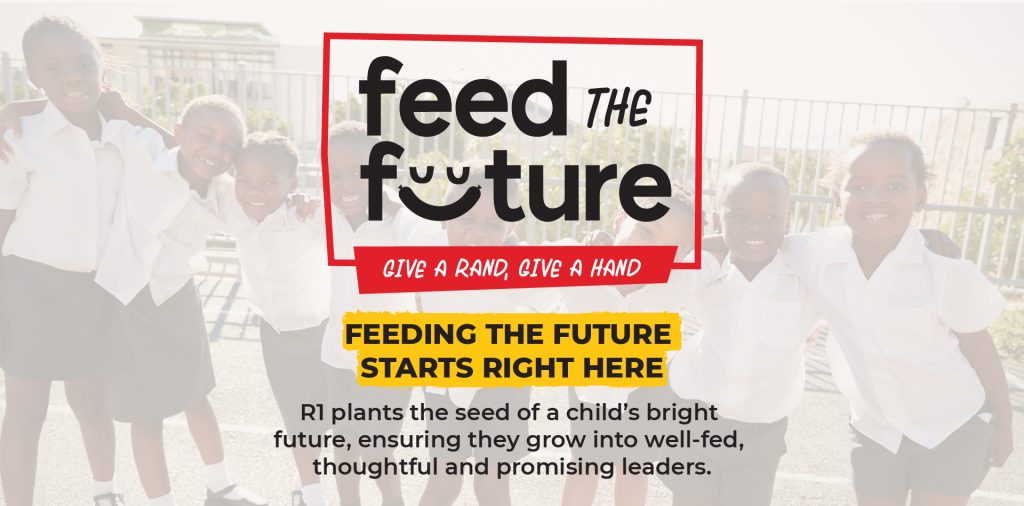
“Give A Rand, Give A Hand” is dedicated to solving the food crisis by feeding children in underprivileged communities surrounding Eskort stores....
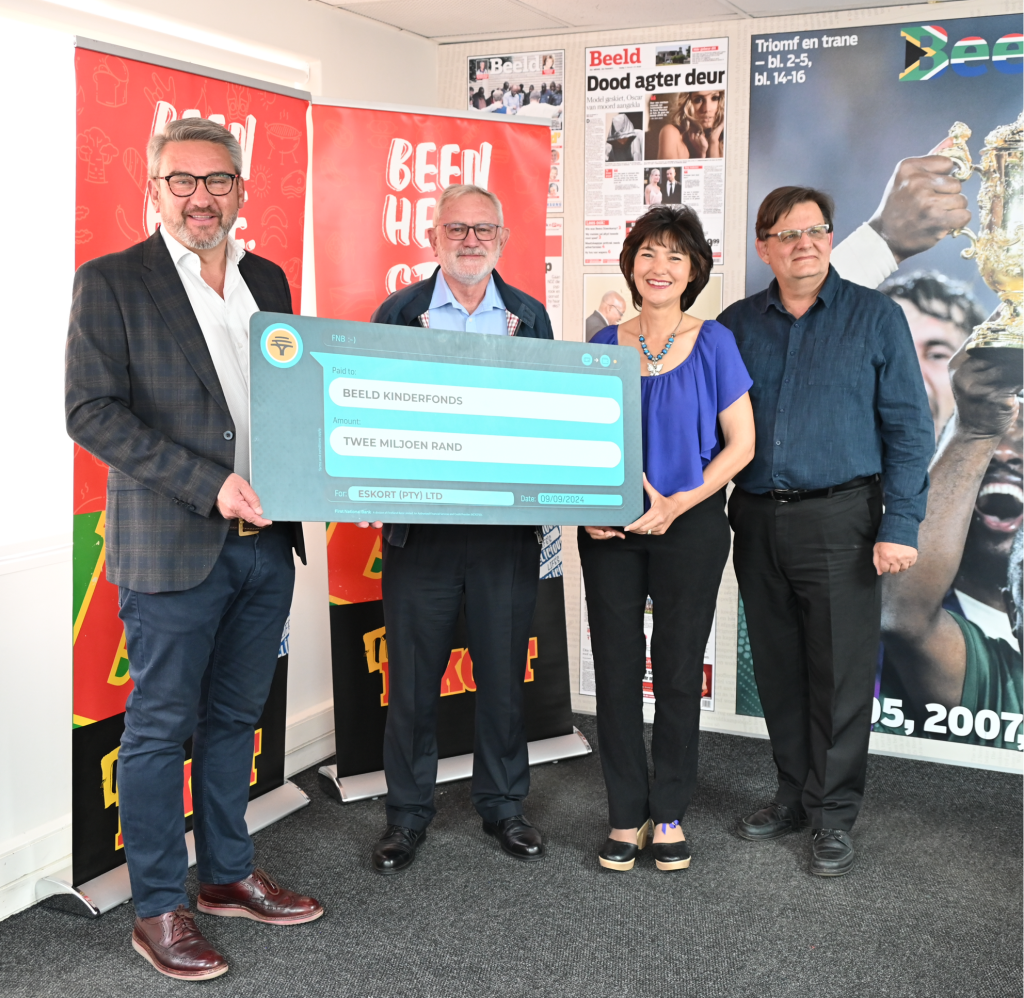
Eskort’s Liberi wine partnership raises R2m for underprivileged children The third collaboration between Eskort, Saronsberg Cellar and a leading...
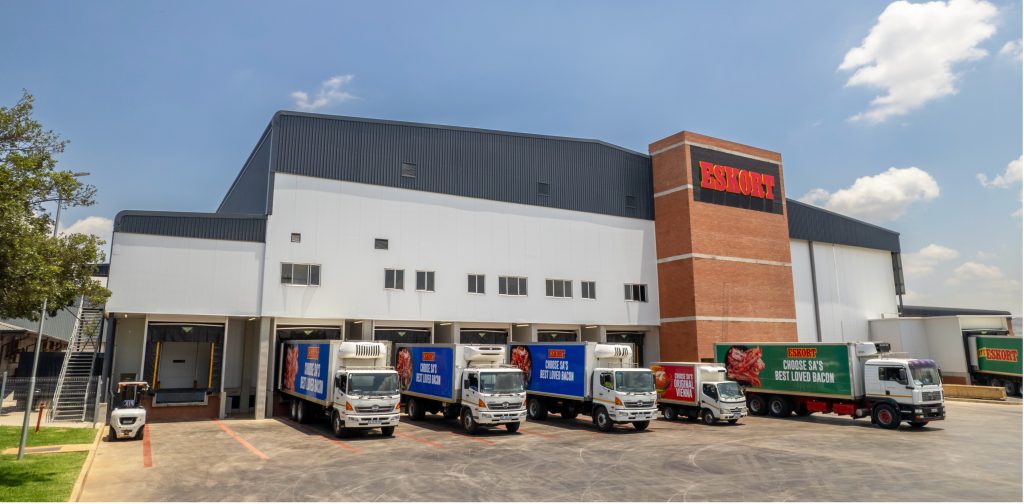
With the official launch of the Heidelberg Factory Extension in mid-February, Eskort, the top pork producer in South Africa, has increased its...
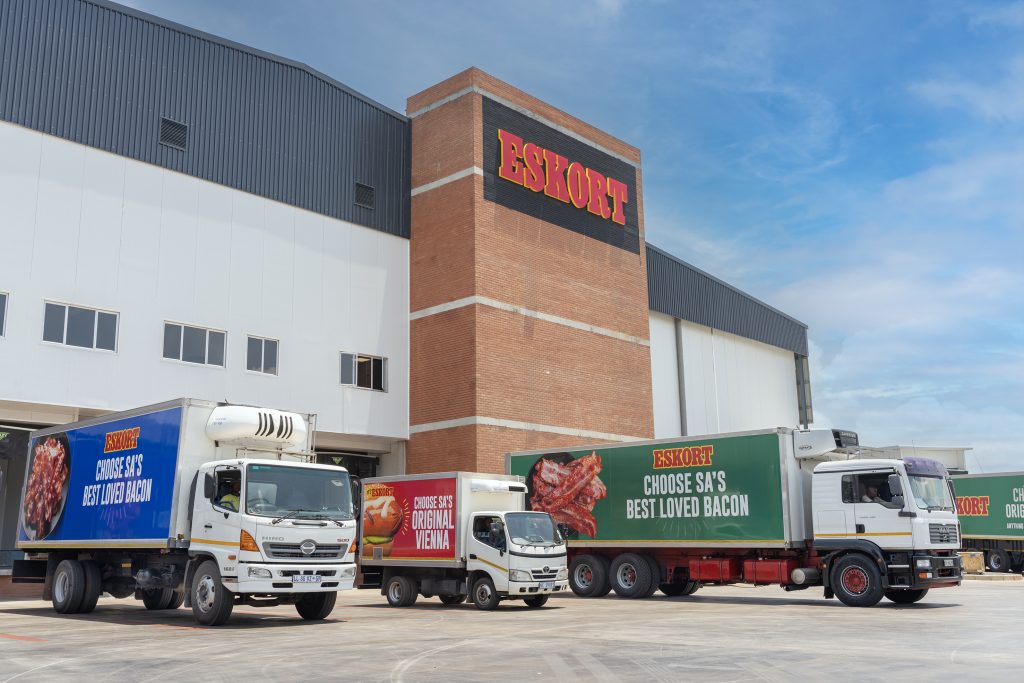
Small-town investment in Heidelberg drives high-tech efficiencies at South Africa’s pork leader Eskort, South Africa’s leading pork manufacturer,...
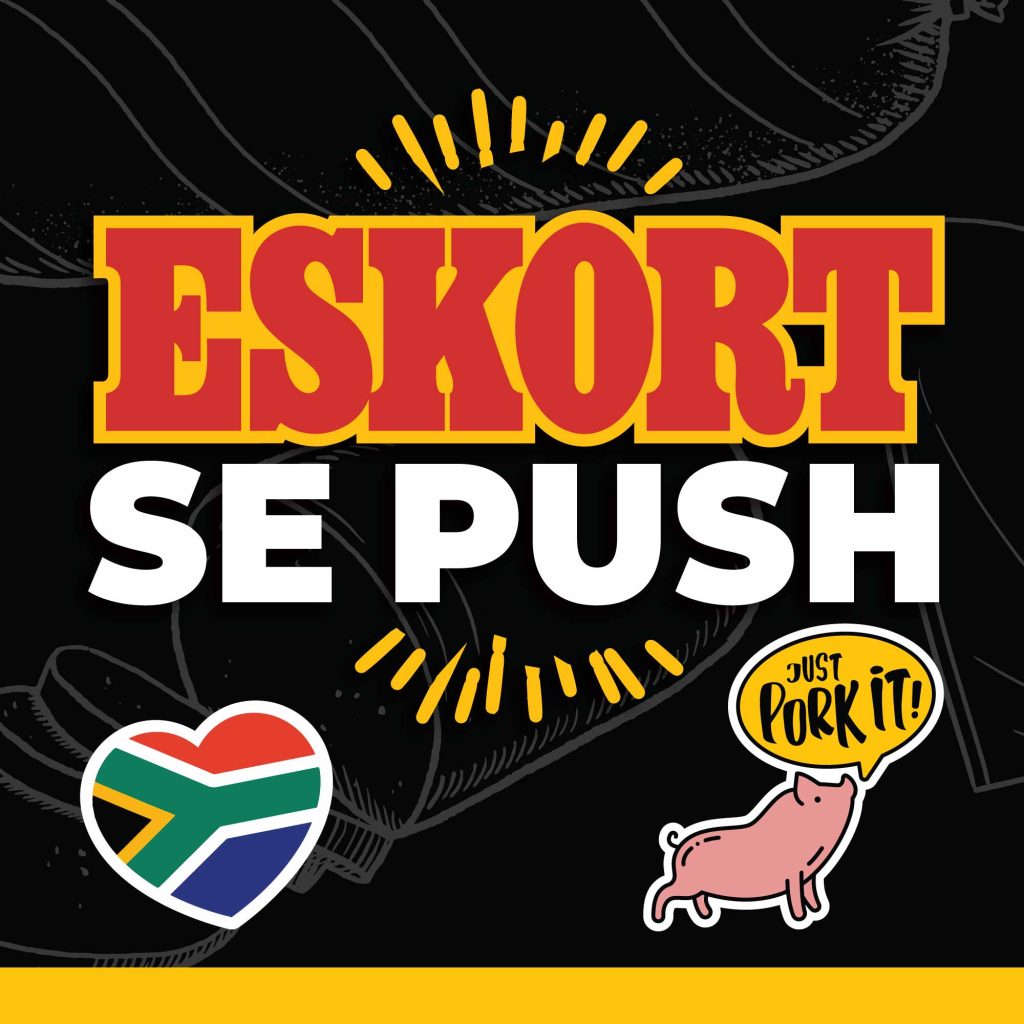
Power outages remain a significant challenge for hard-pressed South African households, particularly when it comes to providing a tasty, affordable...
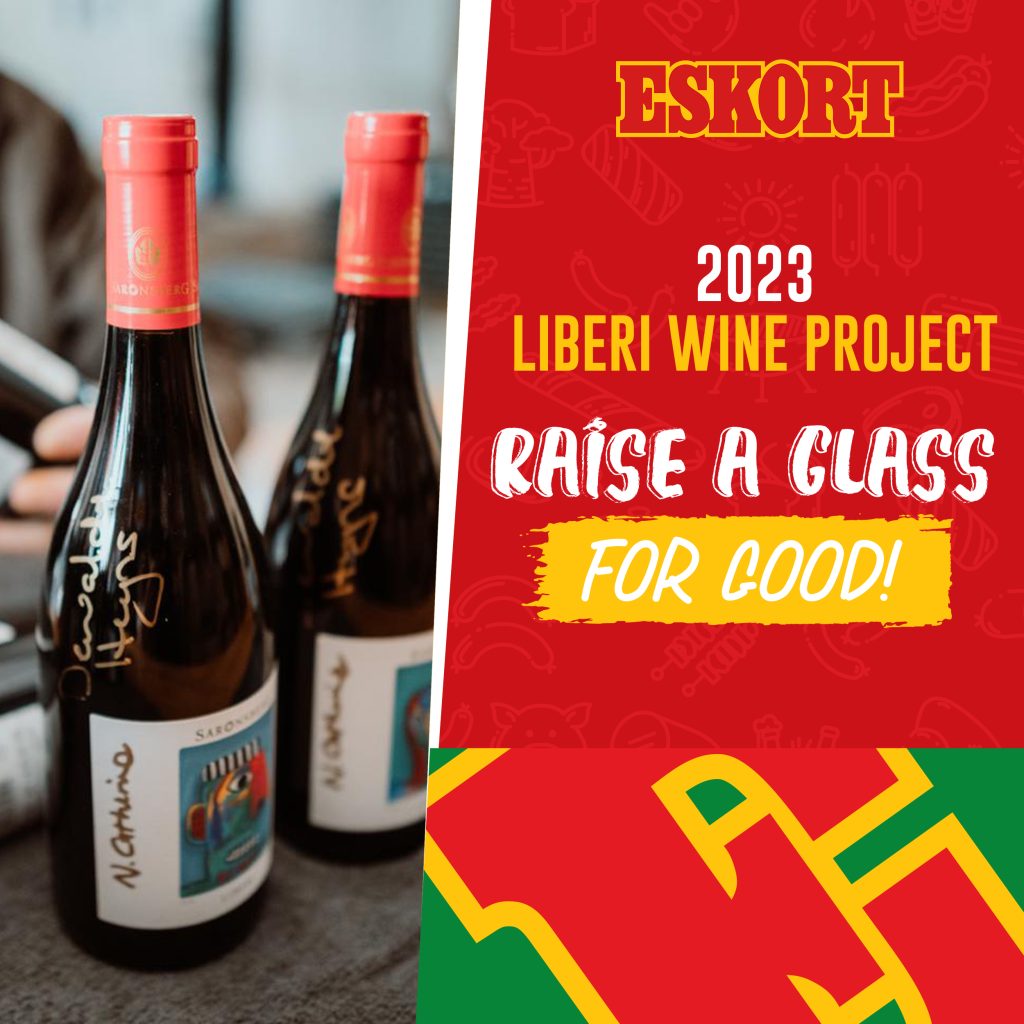
The Liberi wine project, now in its third year, is an Eskort initiative in collaboration with Saronsberg. The project seeks to combat poverty in South...